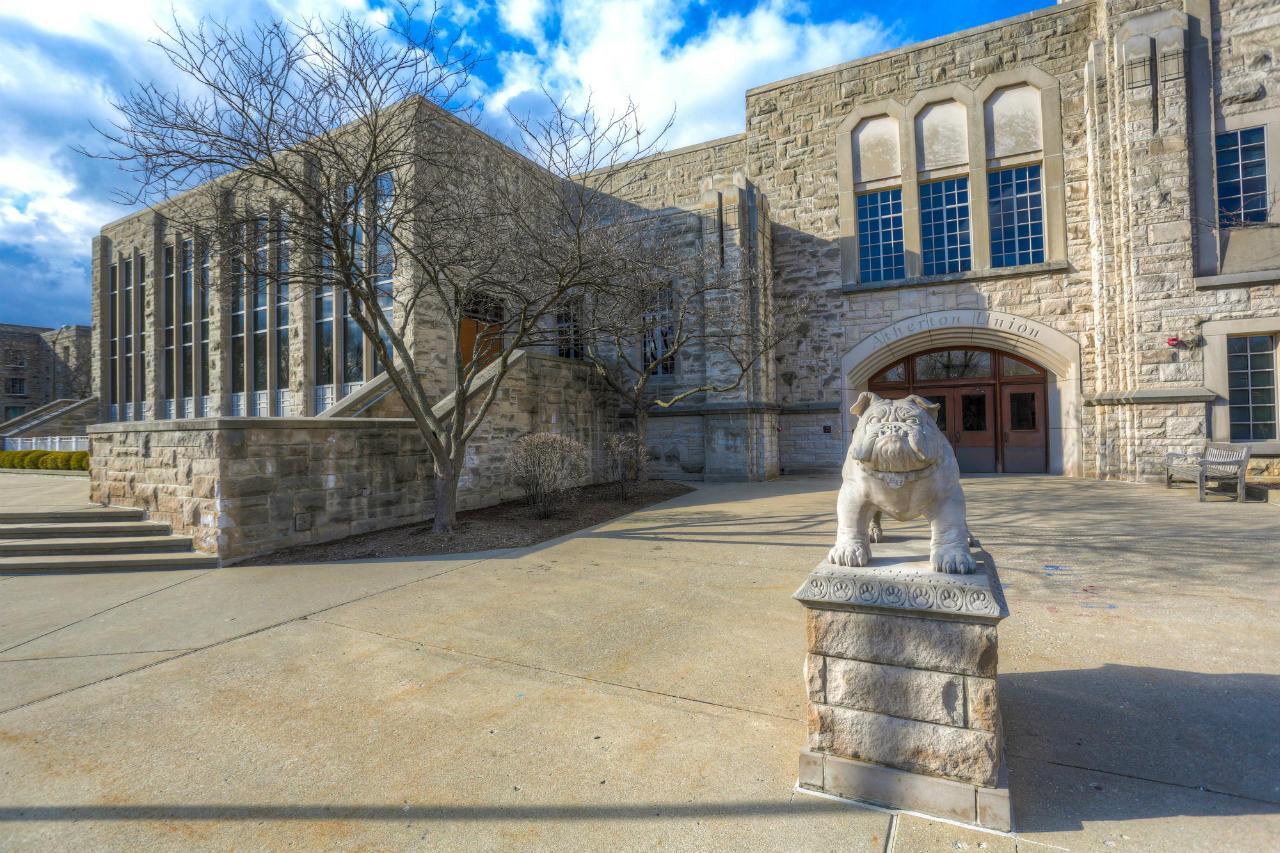Bulldog statue outside of Atherton Union. Collegian file photo.
AUSTIN KLAWITTER | NEWS REPORTER | aklawitt@butler.edu
Butler University has established an Emergency Assistance Fund to provide financial support for students facing unexpected financial hardships. The fund was created in a joint effort between the Office of Financial Aid and the Office of Student Affairs.
The fund is aimed primarily to provide financial aid towards emergency and short-term situations where an unforeseen financial burden has arisen for the student. Eligible situations include unexpected medical and dental expenses, housing and living costs, transportation needs, personal emergencies, natural disasters and food insecurity.
The fund is not aimed at providing long-term financial aid for students and it cannot be used to assist tuition payments like traditional financial aid would.
Melissa Smurdon, director of the Office of Financial Aid, assisted in creating the fund and works to process student applications for assistance.
“As we went from dreaming about this to making it a reality, we talked to other institutions and reviewed good literature and research in order to get multiple sources that have studied the ability for this program to help students reach graduation,” Smurdon said.
Before the fund was established, there was an unofficial system of faculty and staff members who pitched in when they found out about sudden financial woes for students.
The Emergency Assistance Fund was able to officially move forward following an anonymous donation. With this initial seed money, Smurdon said the fund will be able to sustain itself based off of fundraising and donations alone.
The general monetary limit set when filing an application for emergency assistance is $1,500. However, Smurdon said depending on the situation it would be possible to exceed $1,500. Students are also limited to one application per semester, or two per year, although this could also change on a case-by-case basis.
“We are trying to keep it very flexible, but we do have to stress that it should be something unexpected, something changing about your situation, because it is not just an additional aid program,” Smurdon said. “It doesn’t exist to fill the gap, but targets something that has come up unexpectedly.”
Sudden financial hardships can often lead to more long-term financial hardships, even if a short-term situation receives monetary help from something like the Emergency Assistance Fund. The Office of Financial Aid recognizes this and said it plays a role in handling emergency assistance applications.
“The reason we wanted the program in Financial Aid is that [emergency situations] can be the start of a longer term financial situation,” Smurdon said. “We want to be able to talk with the student and make sure they know how to reach out to us. If there is a sudden need because a parent has lost their job [for example], this program might help with that but then there may be additional need in regular financial aid.”
Depending on the situation, either just Financial Aid or both Financial Aid and Student Affairs will discuss the application with the student, then a joint-committee consisting of individuals from both offices will decide whether or not to fulfill the request.
Currently, Smurdon reports they are currently receiving nearly three applications a week, and the program is only in its early stages.
In order to spread awareness and accessibility for the program, representatives have spoken with the Student Government Association Senate as well as other student organizations, and plan to speak with both Staff Assembly and Staff Senate. Education on the fund will also be integrated into Resident Assistant training so they can communicate the resource as well.
The first stage of the application process for students can be found on the homepage for the Butler Emergency Assistance Fund on Butler’s website.



